VPN in the Crypto Field: How Did Aztec Conquer a Host of Top Venture Capitalists?
Author: TokenInsight
Aztec Network is a privacy-focused Ethereum ZK-Rollup.
It is like an enhanced version of Tornado Cash. Their main functionality is similar—mixing coins. However, Aztec allows users to interact with other smart contracts like Aave or Lido Finance while their funds are within Aztec. Aztec has also developed underlying zero-knowledge proof technology and provides a complete set of related tools, including SDKs and programming languages.
As Tornado Cash gradually fades from public view, Aztec completed a $100 million Series B funding round led by a16z, following a previous round led by Paradigm. What is so magical about Aztec that top crypto investors are eager to become its shareholders?
This article will first explore what Aztec is, and then discuss its unique positioning, which merges the two hot topics of privacy and ZK-Rollup.
What is Aztec
Aztec's vision is "Encryption for all," meaning everyone should enjoy privacy protection. The company is headquartered in London and was founded in 2017 by Zac Williamson and Thomas Walton-Pocock. Zac currently serves as CEO, while Thomas has resigned to focus on other ventures. Other key team members include co-founder and product lead Joe Andrews and chief scientist Ariel Gabizon.
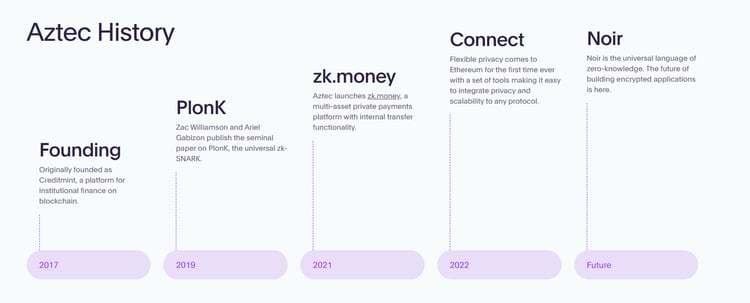
Source: Aztec Website
Aztec was initially established as a blockchain institutional financing platform but later shifted to developing ZK technology. It released PlonK in 2019, zk.money in 2021, Aztec Connect in 2022, and plans to launch Noir in Q2 2023.
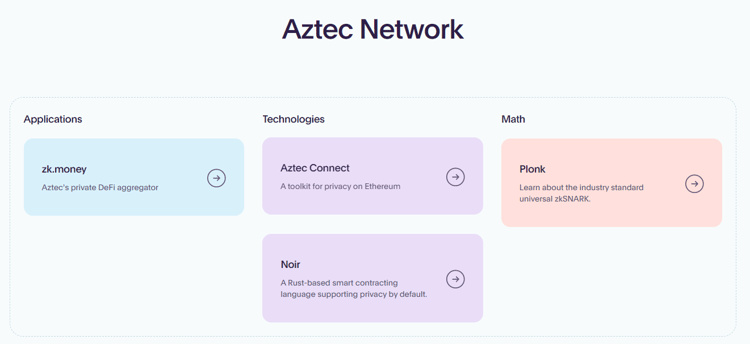
Source: Aztec Website
PlonK
PlonK stands for Permutations over Lagrange-bases for Oecumenical Noninteractive arguments of Knowledge. If you are knowledgeable, you can try reading the Plonk white paper. But if, like me, you don't understand a single word in the full name, I won't attempt to translate it. Just remember that PlonK is an efficient zero-knowledge proof technology used not only by Aztec but also by Mina, Dust, zkSync, Polygon Zero, and others.
PlonK is a type of SNARK zero-knowledge proof technology. STARK types are theoretically more scalable and resistant to attacks but are also less mature. Their relationship is similar to that of Optimistic-Rollup and ZK-Rollup. Optimistic-Rollup may not be as technically sound as zk, but it is currently more popular and the technology is more mature.
zk.money
After releasing PlonK, Aztec developed zk.money, a DApp that provides privacy transactions and cost savings for Ethereum DeFi users.
Users send funds to zk.money and create corresponding private notes on Layer 2. Private notes can be traded and staked to earn yields just like regular Ethereum assets, but all transactions are protected by zero-knowledge proofs.
The entire system records users' assets on the Ethereum mainnet through a fully encrypted state system. When users deposit funds into Aztec, Aztec generates cash-like encrypted notes through its off-chain UTXO state system. The state tree updates the encrypted notes when transactions are submitted and executed. Only the owner can see the content of the notes. Therefore, user identity and account balances are well protected.
zk.money batches user transactions, executes them on the Ethereum mainnet, and proportionally returns funds to users on the Rollup, effectively sharing gas costs among users. This cost-saving method is typical in Rollups.
zk.money is currently not decentralized. The current version relies on Aztec as the sole Rollup provider. Aztec is responsible for relaying transactions between the Ethereum mainnet and the Rollup. However, zk.money plans to integrate more providers to make the system more decentralized.
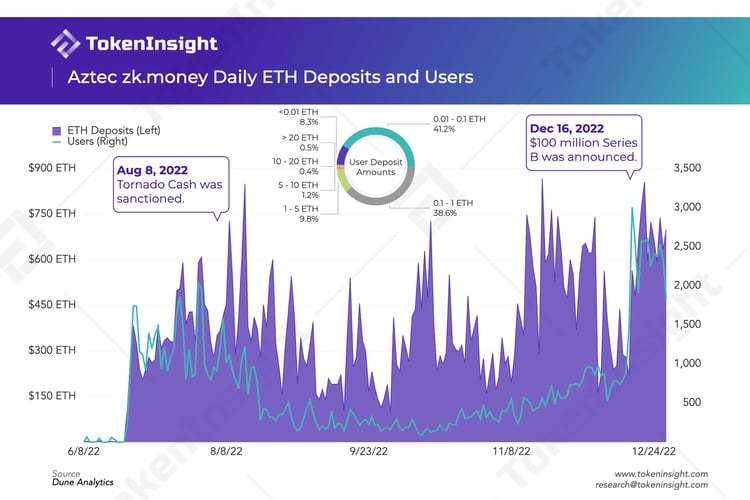
zk.money attracted a considerable amount of transaction volume and users even before Tornado Cash was sanctioned, but the sanctions did indeed boost its deposit volume in the short term. zk.money experienced another surge of users after announcing its Series B funding, but the deposit volume did not increase significantly. New users deposited small amounts of funds, hoping to receive airdrops in the future, which may not develop into active users. This is also reflected in the deposit amounts, with nearly 90% of users depositing less than 1 ETH, and 49.5% depositing less than 0.1 ETH.
As of December 28, 2022, a total of 69,779 $ETH had been deposited into zk.money from 93,889 users; the average deposit amount was 0.37 $ETH, with the highest deposit by a single user being 1,236 ETH.
Because zk.money allows users to mix funds, Aztec also faces significant risks of being sanctioned. This risk has already occurred on a smaller scale. Cointelegram reported that FTX blocked some users who transferred funds through zk.money. FTX classified the DApp as a mixer—deeming this service a "high-risk activity" prohibited by the exchange.
Aztec Connect
Aztec Connect is an SDK (third-party development tool) that allows any Ethereum protocol to integrate into Aztec's privacy Rollup. It enables users to create and submit transactions to Aztec and allows Aztec to interact with other Ethereum smart contracts.
The functionality of Aztec Connect acts like a proxy service for DeFi. Anyone can deposit funds into Aztec and still interact with Ethereum mainnet protocols, enjoying additional privacy protection and reduced costs.
When users send funds to another zk.money account, the recipient receives zkETH. If the recipient is a regular Ethereum address, the wallet will receive regular ETH, and Etherscan will show that the funds were sent from the official Aztec contract.
Noir
Noir is a Rust-based programming language for creating and verifying zero-knowledge proofs.
Currently, developers in the zero-knowledge space need to understand cryptography, which is challenging. Noir aims to solve this problem and allow any developer, not just those with cryptographic knowledge, to build zero-knowledge applications.
Noir does not directly impact Aztec's user experience, but it helps build a strong developer community around its zero-knowledge technology. More developers building more applications is a prerequisite for Aztec to attract more users.
Viewing Aztec from the Perspective of Privacy
Users can achieve privacy protection on three levels: a) blockchain, b) Rollup, and c) smart contracts. We summarize the main privacy-centric solutions in cryptocurrency below.
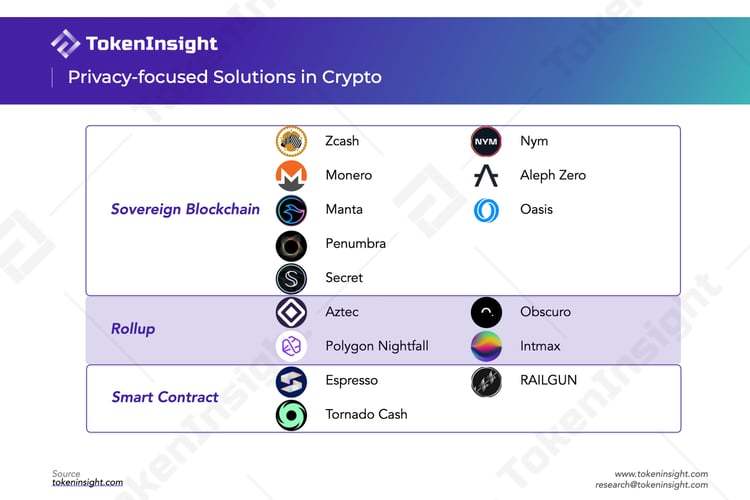
Zcash and Monero are pioneers in the privacy space, but they require more smart contract functionality. Other blockchain solutions have not gained much attention. For blockchain solutions, users (including senders and receivers) must be on the blockchain. They can only transact with blockchain-native tokens and pay gas fees, which limits interactivity, harms user experience, and increases security risks associated with cross-chain bridges.
Aztec is a leading privacy Rollup. Competitors also include Polygon Nightfall, Obscuro, and Intmax. Rollup solutions can achieve privacy transactions while reducing costs. Rollups appear to be the most promising solution, although they are influenced by the underlying public chain ecosystem they are built on.
Smart contract solutions offer more native interactivity with other contracts but are affected by gas costs during peak times. Tornado Cash is the most well-known solution at the smart contract level. It can be used on Ethereum and other chains, including BNB Chain, Polygon, Avalanche, and more.
Viewing Aztec from the Perspective of Rollup
From the Rollup perspective, Aztec is a smart contract Rollup. It interacts with the Ethereum mainnet through smart contracts deployed on the Ethereum mainnet. Currently, there is only one application on Aztec, zk.money, and its functionalities are still limited. With the release of Aztec Connect and Noir, more developers may be able to build new applications on Aztec. After the funding, Aztec will likely allocate dedicated funds, such as establishing an ecosystem fund, to encourage developers to come to the platform.
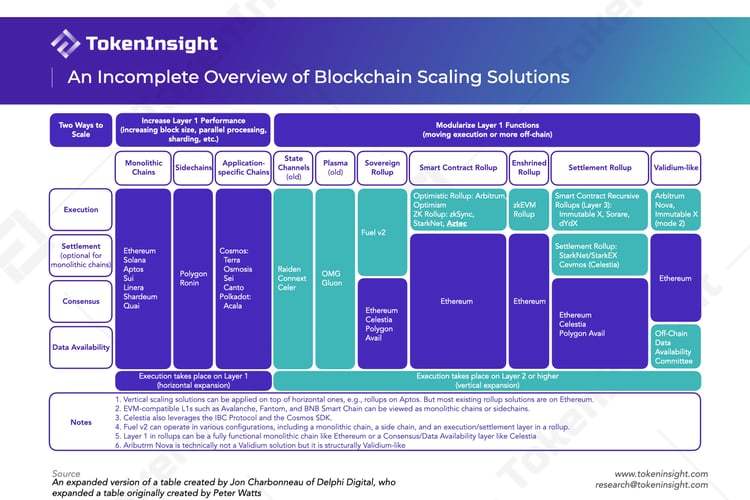
Smart contract Rollups are currently the most popular, but there are other solutions. For example, the Ethereum Foundation has a team dedicated to developing what is called Enshrined Rollups, which have built-in interaction modules with the mainnet, rather than through smart contracts. Settlement Rollups make Layer 3 possible. Aztec may also invite developers to build another layer on top of it, with Aztec serving as the settlement layer while transactions are executed on the third layer. Aztec could also move data availability off-chain to further improve transaction speed and reduce transaction costs.
In Conclusion
Aztec has not yet issued a native token. However, given its decentralization roadmap, it is likely to issue one in the future. If you want to become an early user, you might consider setting up a new account on its official website to give it a try.
In traditional fields, VPNs have seen explosive growth. Aztec serves as the VPN for crypto users. They can run Aztec in the background while interacting with DApps in the foreground. Aztec's unique value proposition sets the team apart, which may be why both Paradigm and a16z have invested. Privacy has always been a hot topic in the crypto space, and Aztec seems capable of making it a reality.











